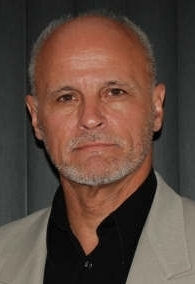 The Arc de Triomphe in Paris, France, is illuminated in green to celebrate the entry into force of the Paris Agreement on November 4, 2016. (Photo by Jean-Baptiste Gurliat/Mairie de Paris. U.S. Government/U.S. Department of State – public domain)
The Arc de Triomphe in Paris, France, is illuminated in green to celebrate the entry into force of the Paris Agreement on November 4, 2016. (Photo by Jean-Baptiste Gurliat/Mairie de Paris. U.S. Government/U.S. Department of State – public domain) U.S. President Donald Trump’s decision to abandon the Paris Agreement on climate may prove unwise, but this should not have come as a surprise, since months earlier, he appointed Scott Pruitt to run the U.S. Environmental Protection Agency.1 Pruitt, by all accounts, believes that global warming doesn’t involve human activity, such as coal burning, driving, or deforestation. Should we admire these men for their skepticism? After all, for centuries scientists have proposed countless theories, widely accepted at the time, that were later proven false. Perhaps they are privy to newly discovered facts or explanations that would lead to a plausible theory that humankind isn’t the driving force behind global warming.
Nearly every scientific discipline has been viewed at one time or another with varying degrees of skepticism. And why not? Science isn’t infallible. Reservation, skepticism, and conjecture constitute the heart of any system that advances knowledge. In science this plays out in self-critical assessments or peer reviewed claims. Both are essential in sustaining science’s credibility and value as an engine for progress. Yet, once reputable authorities establish a theory, the skeptic needs to offer up sound evidence in order to debunk it.
Pruitt and the new Trump administration cannot simply reject current theories of climate change based on nothing more than that they may conflict with a constituency’s self-interest or one’s sheer lack of understanding.
Mr. Pruitt claims to be “an expert in Constitutional law,” which he apparently thinks somehow qualifies him to deal with the impact regulations have on the environment. He asserts President Obama’s Clean Power Plan would have the effect of shuttering coal-fired power plants, thereby increasing electricity costs, amounting to a cap-and-trade system for carbon emissions, which Congress already rejected. True enough. But supporting his stance on the grounds that the environment will be none-the-worse for it flies in the face of global warming science.
It’s also true that fields such as philosophy, history, and, even law and political science, often point to where scientific answers might be found. But unlike law, science adds the necessity for empirical evidence: multiple observations, testing, data, which draw conclusions subject to verification, and the ability to falsify the theory advocated. Unlike law, science discovers, and in so doing expands the body of universal, epistemic relationships — steering clear of emotion, ideology, or politics. And, although science works to conserve established theories, it has a capacity to undergo revision when assumptions and data fail to account for what more cogent, deeper analysis or instrumentation reveals. That being said, not every skeptic has a vote.
Those who depend on experts for answers, including elected or appointed officials, should want to know how these specialists justify their claims. Under what conditions do they form hypotheses from small samples of facts to create more encompassing theories? When a scientist reports a year-over-year rise in the Earth’s temperature, what links this to the use of fossil fuels or simply some natural phenomenon? What links empirical evidence of one thing to the causation of another? If Mr. Pruitt disagrees with the majority of experts on the cause of climate change, he should enlighten us about what explains the precipitous thawing of our permafrost, the lengthening of the growing season in middle and higher latitudes, the poleward and upward shift of plant and animal ranges, the decline of some plant and animal species, and the earlier flowering of trees, emergence of insects, and egg-laying in birds. Environmental science attempts to answer these kinds of questions, which should have served as points of entry to Mr. Pruitt’s confirmation testimony, but these sorts of details never came up.
A baseball pitcher needn’t study physics to pitch well, and fans will not much care if the physicist explains why the pitcher’s fastball works well in the ninth inning. Likewise, politics, law, ethics, and other social constructs can reduce to irrelevance the physical part of an undertaking, the slice that science deals with. Politicians simply may not care about the science. But this ambivalence must not be allowed to persist, if through policy, we have any chance in slowing down and finally arresting climate change.
Pruitt can invoke many good reasons for rejecting scientific-like explanations about global warming. Indeed, we look to science itself to help separate true science from junk science. But, the new administration cannot simply reject the current theory based on nothing more than that it may conflict with a constituency’s self-interest or one’s sheer lack of understanding. On a more justified level, Pruitt may criticize the science because: 1) reasonably-based competing views or data point in another direction; 2) relevant empirical data cannot be explained by the theory; 3) a model of the phenomenon critical to the theory doesn’t account for an apparent feature or complexity; 4) samples may have been inappropriately drawn in support of a necessary hypothesis; 5) there exists a lack of experimental replication; 6) there is a lack of peer review; or (7) it’s based on a theory incompatible with the requirement that it must be capable of falsification through empirical observation. Skeptics, such as Mr. Pruitt, have many potential places upon which they might stake a reasonable case. It remains to be seen if by any one of these theory-busters Mr. Pruitt can plausibly dispute what has caused an increase in global average surface temperature of about 1°F over the past century, or what accounts for a rise in global average sea level, the increase in ocean water temperatures, or the increase in the frequency of extreme precipitation events in some regions of the world.
The union of scientists, worldwide, looks to peer reviewers as an established criterion for judging the integrity of scientific claims. Over 13 000 peer-reviewed articles stand for and about 100 against the proposition that humans cause global warming. It’s not evident that Pruitt understands this, and without a well-reasoned sense for how science, technology, and policy can avert this threat to the way we have historically live on the planet, it’s doubtful that anytime soon we will see a turn-about in U.S. policy, vis-à-vis support for the Paris Agreement.

Joe Carvalko is an adjunct professor of Law, Science, and Technology at Quinnipiac University, Hamden, CT. Email: carvalko@sbcglobal.net.
Access full article including footnotes here.






 JOIN SSIT
JOIN SSIT